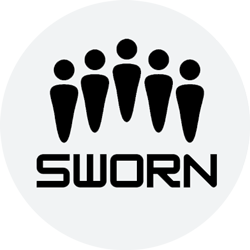AI-Driven Mental Health Screening Tools for First Responders: A Comprehensive Review
Introduction
First responders such as police officers, paramedics, firefighters, and emergency medical technicians are continually exposed to stressful and traumatic situations. These experiences significantly increase their risk of developing mental health issues, including post-traumatic stress disorder (PTSD), depression, and anxiety. Traditional mental health assessment methods often fall short, leading to delays in diagnosis and treatment. This article explores how AI-driven mental health screening tools can enhance early detection, personalized support, and effective intervention for first responders.
Background
The prevalence of mental health issues among first responders is a growing concern globally. Studies reveal that first responders have a higher risk of mental health problems compared to the general population. For example, a National Institute of Mental Health (NIMH) study found that first responders exhibit higher incidences of depression, anxiety, and PTSD. Similarly, a survey by the International Association of Chiefs of Police (IACP) reported that 70% of law enforcement officers experience symptoms of PTSD or depression. Traditional mental health assessment and care methods are often reactive, leading to delayed treatment and increased negative outcomes.
AI-Driven Mental Health Screening Tools
Enhanced Detection and Early Intervention
AI-driven tools promise to revolutionize mental health screening by providing early and accurate detection of mental health issues. These tools can analyze speech patterns, facial expressions, and physiological indicators to identify early signs of mental disorders. For instance, Aiberry’s AI platform utilizes text, audio, and video cues to deliver quantified risk scores in real-time, allowing for early intervention and personalized support. Additionally, AI can analyze social media data to monitor public sentiment and identify individuals at risk of developing mental health issues.
Personalized Support and Treatment
AI-driven tools can offer personalized support and treatment plans tailored to individual needs. They can integrate with electronic health records (EHRs) to provide a comprehensive mental health assessment and adapt treatment protocols accordingly. AI can simulate clinical trials, predict drug efficacy, and discover novel compounds, leading to more effective treatments. Moreover, AI-powered chatbots can engage users in empathetic conversations, providing guidance, coping strategies, and referrals to professional assistance.
Integration with Existing Systems
AI-driven mental health screening tools can integrate with existing systems to ensure seamless delivery of mental health services. For example, Harris County, Texas, uses technology to drive forward-thinking mental health and public safety solutions, integrating AI-driven mental health assessments into their crisis intervention strategies. This integration facilitates data sharing and ensures consistent mental health assessments across different platforms.
Challenges and Ethical Considerations
Data Privacy and Security
AI-driven mental health screening tools handle sensitive personal data, requiring robust data privacy and security measures. The mental health data of first responders must be protected to ensure confidentiality and prevent misuse, given the highly personal nature of this information.
Bias and Accuracy
AI models can produce false results, significantly concerning mental health assessments. Ensuring the accuracy and reliability of AI-driven mental health tools is crucial to avoid misdiagnosis and inappropriate treatment. Continuous monitoring and refinement of AI models are essential to address any biases or errors.
Human-Centered Approach
AI should complement human expertise, not replace it. AI-driven tools can streamline administrative tasks, allowing clinicians to focus on empathetic care. A human-centered approach is vital to ensure that AI models are designed with the needs and perspectives of first responders in mind.
Future Prospects
The future of AI-driven mental health screening tools for first responders holds immense promise. As AI technology advances, more sophisticated applications will emerge, such as AI-powered virtual reality therapy and AI-assisted crisis intervention. Integrating AI with wearable technologies and social media platforms will further enhance the accuracy and accessibility of mental health assessments. Ongoing research and collaboration between mental health experts, AI developers, and policymakers will be essential to ensure the responsible use of AI in mental health care and continuously improve these tools.
Conclusion
AI-driven mental health screening tools have the potential to transform how first responders receive mental health care. By providing early and accurate detection, personalized support, and seamless integration with existing systems, these tools can enhance the mental well-being of first responders and improve overall public safety. However, ethical considerations, data privacy, and the need for a human-centered approach must be addressed to ensure the effective and responsible use of AI in mental health care. As AI in mental health evolves, synergy between AI and human expertise will be key in realizing these tools’ full potential and improving first responders’ mental health.
References
“Powering Mental Health Assessments with AI: An SMB’s Innovative Solution.” Amazon Web Services, 8 Apr. 2024, https://aws.amazon.com/blogs/smb/powering-mental-health-assessments-with-ai-an-smbs-innovative-solution/.
“Enhancing mental health with Artificial Intelligence: Current trends and future prospects.” ScienceDirect, 2024, https://www.sciencedirect.com/science/article/pii/S2949916X24000525.
“Artificial Intelligence for Mental Healthcare: Clinical Applications.” National Center for Biotechnology Information, 8 Feb. 2021, https://www.ncbi.nlm.nih.gov/pmc/articles/PMC8349367/.
“Connecting First Responders with Mental Health Expertise.” Papers, 2024, https://papers.govtech.com/Connecting-First-Responders-with-Mental-Health-Expertise-142615.html.
“Artificial intelligence in positive mental health: a narrative review.” National Center for Biotechnology Information, 18 Mar. 2024, https://www.ncbi.nlm.nih.gov/pmc/articles/PMC10982476/.



